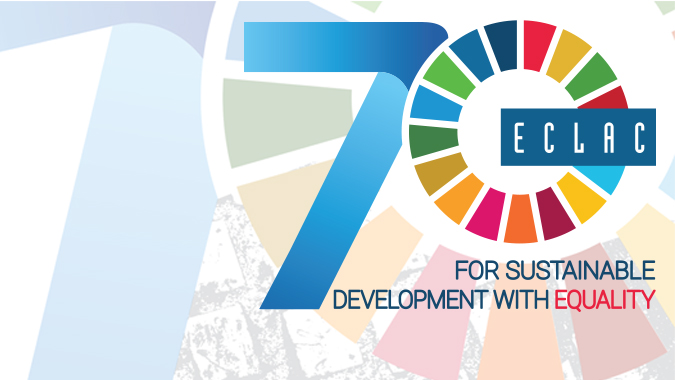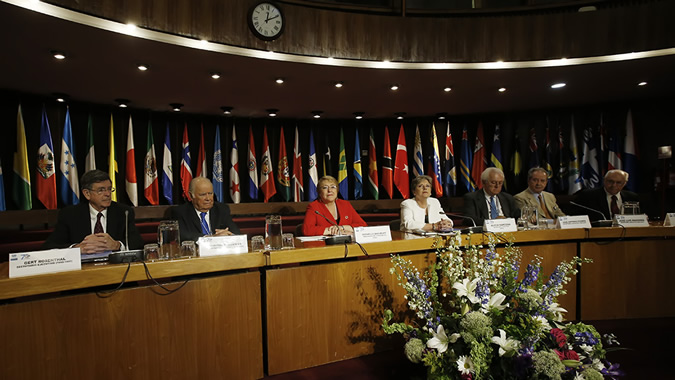ECLAC Turns 70 Years Old While Contributing to Forging Sustainable Development with Equality
The United Nations regional commission, founded on February 25, 1948, currently has 46 member States and 13 associate members.

The Economic Commission for Latin America and the Caribbean (ECLAC) commemorated on Sunday, February 25 its 70th anniversary contributing to the forging of sustainable development with equality for all the peoples of the Latin American and Caribbean region.
“More than ever, this new anniversary offers us the opportunity to revitalize our mission and reaffirm our commitment to the values that underpin our daily work. This anniversary invites us to reconsider yesterday, live today and build tomorrow,” said Alicia Bárcena, Executive Secretary of the regional organization.
ECLAC was founded on February 25, 1948 via resolution number 106 (VI) of the United Nations Economic and Social Council. It is one of five United Nations regional commissions and is the only intergovernmental body of the United Nations Secretariat in Latin America and the Caribbean. It acts as a bridge between global and national levels with regard to development.
Since its inception, the Commission has worked to contribute to Latin America and the Caribbean’s economic development, coordinate actions aimed at its promotion, strengthen economic relations among countries and between them and other nations of the world, and promote social development.
Over the course of its 70-year history, ECLAC has combined thinking, action and technical support to countries to make progress on the region’s development and reflect on the opportunities and limitations of each of its historical periods. It has formulated analyses and proposed strategies, policies and instruments in the process of the rise and fall of import substitution industrialization, in the period of major shifts in the economic and social development model arising from productive and financial globalization, and in the current decade of uncertainty about the future of globalization, of increasing inequality and the global environmental crisis.
Today ECLAC has 46 member States and 13 associate members. Its central headquarters is in Santiago, Chile and it has two subregional headquarters: one for Mexico and Central America, located in Mexico City, and another for the English-speaking Caribbean, located in Port of Spain, Trinidad and Tobago. In addition, it has five national offices (Brasilia, Bogota, Buenos Aires, Montevideo and Washington D.C.).
It has been headed since 2008 by Mexican national Alicia Bárcena, the first woman to hold this post.
In the last decade, ECLAC has proposed an agenda that puts equality at the center of sustainable development and identifies technological change as the driver for transforming the productive matrix. This proposal has been maturing over time since 2010, moving beyond the conception of equality as better income distribution to embrace a logic of the equality of rights in economic, social and political spheres, in line with the 2030 Agenda for Sustainable Development and its 17 goals, which were approved at the heart of the United Nations in 2015.
The commemoration of ECLAC’s 70-year anniversary will take place throughout 2018 with different events to be held in Santiago, New York and elsewhere in the region.
Related content

ECLAC Reaffirms Its Commitment to Working for Development with Equality, Well-being and Environmental Sustainability in Latin America and the Caribbean
The United Nations regional organization held a high-level seminar today in commemoration of its 70th anniversary.
Related link(s)
Country(ies)
- Latin America and the Caribbean
Contact
Public Information Unit
- prensa@cepal.org
- (56 2) 2210 2040